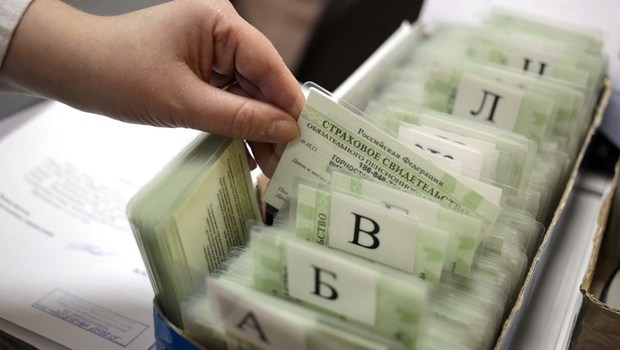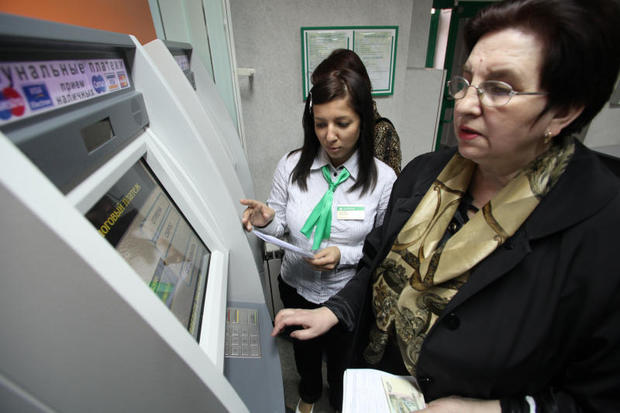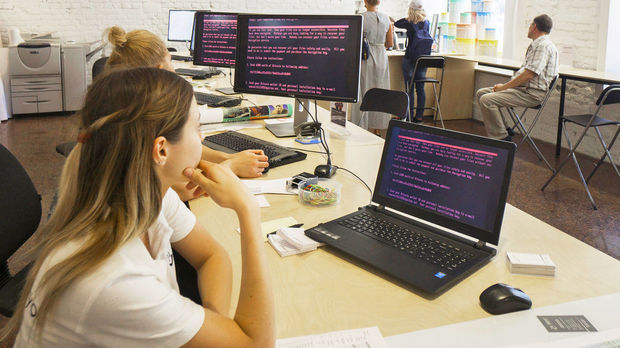Vsevolod Chaplin: ''What impedes from putting ‘‘electronic economy’’ under public control?''
Orthodox blogger Vsevolod Chaplin about the National Biometric Platform as a single basket for e-eggs and public control of the system
Tests in banks of the National Biometric Platform are scheduled precisely for July. A corresponding bill was created in the State Duma as early as spring. Many credit and financial organisations are ready to identify their clients by face. It seems to be the next step to the ''better digital'' future. At the same time, Realnoe Vremya's columnist Archpriest Vsevolod Chaplin doesn't share the joy of deputies and bankers. Chaplin mentions formation of a totalitarian control regime that penetrates every person's ''brain and soul''. The Orthodox priest gives an explanation in his op-ed column written for our online newspaper.
Total anti-utopia
''Digital economy'' whose trendy slogans expectedly became popular among our power can't help but include personality. In its deepest aspects. What will ''digitalisation of soul'' start with? Won't it turn a person into an Android key part of the severely managed system?
The Orthodox community has already been asking itself and the power these questions for 30 years. Discussions began in the Greek-speaking world, and then powerfully broke out in the Slavic world, especially in Ukraine and Russia. Yes, one can laugh at the raised questions. On the one hand, ''zealots without understanding'' who find images of Baphomet, Lucifer's crowns and even a snake biting its tail while looking at the Russian passport do it. On the other hand, all kinds of liberals act – I think they are conceptionally or financially backed by creators of new risky technologies. This audience accuses the Orthodox community of silly retrogradism, technophobia, fear of ''being counted''.

''Those who just try to leave the total control system can be simply turned off from basic material comforts – pensions, food products, medical help. Will you say it is a scenario of anti-utopia? No, it is already happening to the people who, for instance, refuse Individual Insurance Account Number.'' Photo: dp.ru
Earlier, in the 90s, I was sceptical about ''alarmists''. But then, having talked to them a lot in the line of duty, I heard explanations of these people, there are many specialists in law, politics and information technologies among them. More often we are not speaking about just useful novelties but a system that will obligatorily penetrate a person's brain and soul. Because the total accumulation and total storage of information can't help but generate total power – both national and international. The well-known words ''Who owns the information, owns the world'' that were born after Nathan Rothschild's speculation at the end of Waterloo is not just a bright and beautiful phrase. It is a reflection of the reality, more powerful and terrifying. A person who understands that almost everything is clear about him will be psychologically dependent on owners of total information. Especially those who wish to build a career, to be considered ''advanced'' and up-to-date, in general, so to speak. But those who just try to leave the total control system can be simply cut off from basic material comforts – pensions, food products, medical help. Will you say it is a scenario of anti-utopia? No, it is already happening to the people who, for instance, refuse Individual Insurance Account Number.
Impossible to stop the progress?
Just understanding it all, many religious people (and not only they) are against the introduction of Contingent system that presupposes a centralised data collection about successes and health of pupils. Mainly thanks to active ordinary people, a case, which has been unprecedented in the last years, happened: the president denied the law on Contingent that was adopted by the Duma and approved by the Federation Council as a guarantee of Constitution. However, this project will likely to be pushed again. Moreover, its initiators will agree to sacrifice some positions, of course, to get the long-awaited signature of the president below the law.

''The project on identification of people by their face and voice by banks already starts to come into effect. In another five years, such identification will be technically possible at any time and almost at any point of the space, in reality or online.'' Photo: vm.ru
General e-registry of the population is next in line. Moreover, every ''registered'' person is going to have a personal code. And many people still would like to enter into a relationship with the state under their name, not a code, like it was in sadly known famous establishments of Hitler's Germany. The Council of Orthodox Public Union is considering a project to address the power on this registry. And experts tell us that its appearance can bring to a loss of the state sovereignty and enable any criminal including sabotage affairs towards all the population of the country.
Others will say: ''It is impossible to stop the progress''. Yes, it is developing fast. The project on identification of people by their face and voice by banks already starts to come into effect. In another five years, such identification will be technically possible at any time and almost in any point of the space, in reality or online. It seems such a system promises to be more comfortable: no implanted chip, no personal number, no e-card, not to mention passport, will be needed. But this kind of system can't live without totality and 100% guarantee of identification of every ''key part'' of a biological object. Otherwise, creators and supervisors of the system won't sleep well. This is why it will be probably ''enriched'' with codes and chips – voluntary first, then…
Don't put all your eggs in one basket
Indeed, it is difficult to deny people the right to make up and implement technological novelties. But what impedes from putting ''electronic economy'', especially ''electronic power'', under public control? For instance, to guarantee access of every person to information about him and possibility to change or deletion if he doesn't breach a law? And to provide voluntary and a variety of identification methods if they are reliable? And to achieve the creation of public commissions to control the content and database storage about the population at the national and international level?

''The information oligarchy (power of the few, in fact) is unlikely to win the eternal fight of locks against master keys, bars and dynamites. The latest notorious hacks perfectly confirm it.'' Photo: vesti-ukr.com
Yes, access of a considerable number of people is dangerous because there is a risk of penetration of criminality to steal, change and damage of data. But the information oligarchy (power of the few, in fact) is unlikely to win the eternal fight of locks against master keys, bars and dynamites.
The latest notorious hacks perfectly confirm it. Probably we should remember an ancient but very topical principle: don't put all your eggs in one basket. In other words, don't create a single database but several, which are connected with each other. It was understood a long time ago in Great Britain, France and Germany – they determinately refused to create a single database about the population having weighed up pros and cons.